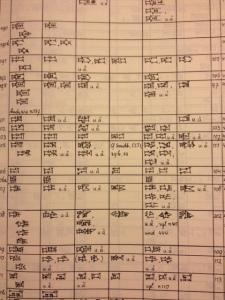Now, I don’t know how often you have to compile a bibliography, but it’s harder than it used to be.Some time ago—my hardware’s a bit aged, so I can’t remember exactly when—Apple products wouldn’t run Microsoft software.In one of those turf wars that occasionally break out among those who vie for technical control of the world, the two companies divorced for a period.As a result, when I open Word files on my Mac, they become “Pages” documents.That’s fine; since I use a variety of word processors I can usually figure them out fairly readily.One thing, however, that both Word and Pages do is to assume they know what you’re trying to do.Software engineers control “smart options” so that when, for example, you’re working on a numbered list (or lettered list) it automatically goes to the next number or letter, formatting happily as it goes.
I have an article coming out in a collection of essays and I had to put a bibliography together.One of the books was, unfortunately, written by an author who styled himself with an initial for his first name.Since that initial was “A.” I had great difficulty convincing Pages (as I would have Word) that I was not trying to start a lettered list.I was trying to build a bibliography.No matter what I did—copy and paste, retype, hit “delete” til my fingers bled—it simply would not change this A. from a numbered list (just as it likes to capitalize the word that comes after a period automatically) to regular text.I finally had to retype the whole entry, careful not to put the first initial first, so that Pages wouldn’t reform everything with no option to shut that feature off. I later snuck in while Pages was dozing and added the A.
Early on, I admit, the footnote function in Word saved premature graying.Having typed—literally typed—many a college paper only to find that I’d misjudged the spacing required for footnotes and having to retype the entire page, I appreciated this auto-function.It was great to have an option where an algorithm could figure out all the spacing for you, and all you had to do was enter data.Now, however, word processors think in terms of the lowest common denominator.If you begin with “A.” you naturally will be progressing to “B.”Apparently there is no other reason that a sentient being would begin with “A.” And of course bibliography begins with “B.”

How do I list this?
